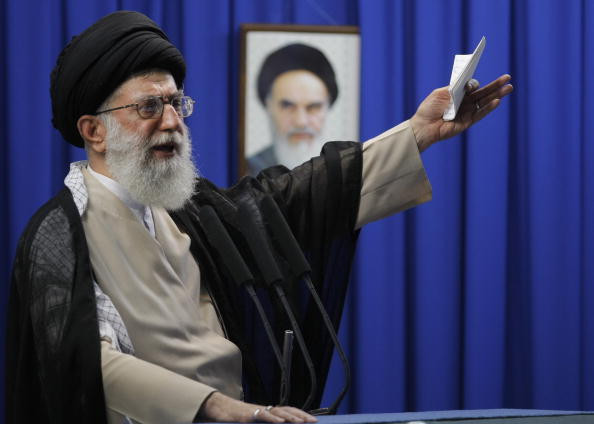Iran nuclear talks: Agreement delays blamed on supreme leader Ayatollah Ali Khamenei

Repeated consultations with Iran's Supreme leader Ayatollah Ali Khamenei reported to be the reason behind delays in concluding ongoing nuclear agreement talks.
As the Iranian nuclear agreement talks entered a seventh day, diplomatic sources revealed Iranian delegation's constant consultations with Iran's Supreme leader are to blame for the delay in reaching an agreement.
We have a broad framework of understanding, but there are still some key issues that we have to work through.
Iranian delegation has been reported to repeatedly consult with Tehran for clearance as uncertainty looms among Western powers about the Ayatollah's stance on the nuclear agreement.
According to social media reports, the 75-year-old leader has maintained that an agreement must come with an end to economic sanctions against Iran, as well as the country being granted the freedom to carry research.
In an address earlier this month, the Ayatollah said: "Removal of sanctions will happen immediately when the deal is reached ... otherwise, we will not agree."
Senior Iranian negotiator Abbas Araghchi shadowed the leader's stance saying: "We hope to wrap up the talks ... [but] we insist on the lifting of financial, oil and banking sanctions immediately... We insist on keeping research with advanced centrifuges."
As the 31 March deadline passed in Lausanne, P5+1 group held differing views on the progress of the negotiations.
While the White House spokesman Josh Earnest said, "the time has come for Iran to make some decisions," British foreign secretary Philip Hammond said there are still issues to work on.
"We have a broad framework of understanding, but there are still some key issues that we have to work through," said Hammond.
Laurent Fabius, the Foreign Minister of France, mirrored Hammond saying: "Yes, things have progressed, but not enough that we can reach an immediate deal. "
Russian foreign secretary, Sergei Lavrov, however said: "One can say with enough confidence that ministers have reached a general agreement on all key aspects of a final settlement."
Lavrov added that with a little fine tuning in June, an agreement can soon be reached.
© Copyright IBTimes 2025. All rights reserved.






















